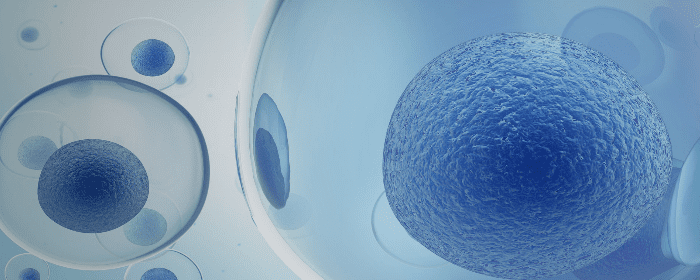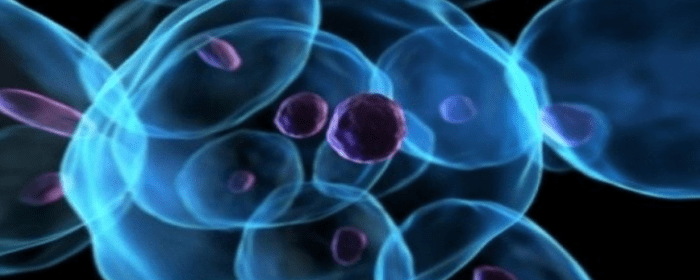
by admin | Jan 8, 2021 | Stem Cell Therapy, Heart Failure, Mesenchymal Stem Cells, Stem Cell Research
After a decade of research, the safety and efficacy of intravenous infusion of bone-marrow-derived stem cells for therapeutic treatment in individuals with heart failure have been well established; however, until Bartolucci et al’s phase 1 / 2 randomized controlled trial of intravenous infusion umbilical cord mesenchymal stem cells (UC-MSCs) on heart disease, no clinical studies have examined the safety and efficacy of similar intravenous infusion of UC-MSCs in patients with chronic systolic heart failure (HFrEF).
Specifically, therapeutic treatment of heart failure with stem cells harvested from bone marrow has demonstrated improved cardiac function and regeneration of damaged heart tissue resulting in moderate clinical benefits in survival, left ventricular function, and improved quality of life in patients with HFrEF.
While MSCs isolated from adult bone marrow have demonstrated benefits, the invasive harvesting procedure and differentiation potential related to donor age and comorbidity associated with BM-MSC present several disadvantages when evaluating for clinical application.
On the other hand, when compared to BM-MSCs, umbilical cord-derived MSCs, or UC-MSCs, are easily attainable, demonstrate less cellular aging, and are not obstructed by potential ethical concerns.
With preclinical research demonstrating UC-MSC supporting enhanced vascular regeneration and cardiomyocyte protection, Bartolucci et al’s study aimed to evaluate the safety and efficacy of intravenous infusion of UC-derived stem cells for therapeutic treatment in individuals with heart failure.
This RIMECARD trial was the first randomized, double-blind, placebo-controlled study of intravenous infusion of allogeneic UC-MSCs in patients with chronic HFrEF. Although there has been limited experience on intravenous administration of MSCs in patients with cardiovascular diseases, it has been well established that MSC-based therapies are considered safe for therapeutic use in this application; further review of prospective clinical trials also did not detect a risk of infusion toxicity, organ system complications, infection, death, or malignancy in treated patients.
The results of the RIMECARD trial demonstrated that delivery of UC-MSCs seems safe for use in the HFrEF population with observable improvements in LVEF in patients receiving intravenous UC-MSC treatments. Researchers have proposed many potential reasons for the clinical benefits of the application of UC-MSCs among patients with heart failure including reduction in myocardial cell apoptosis, less myocardial inflammation and myocardial fibrosis, the formation of new cardiac-related blood vessels, and increased cell differentiation.
One notable observation of this study was the notable cardiomyogenic differentiation potential between UC-MSCs and BM-MSCs. It appeared that BM-MSCs presented a more favorable profile of transcription factors related to cardiac differentiation; however, findings demonstrating poor retention rates after intramyocardial injections of BM-MSCs render them potentially insufficient for what is required to be deemed clinically beneficial.
By comparison, the paracrine factors observed demonstrate a significant advantage of UC-MSCs over BM-MSCs with the most prominent difference being the expression of hepatocyte growth factor in UC-MSCs from all tested donors (BM-MSCs showed low to undetectable levels).
While further analysis and outcomes were considered limited based on small patient sample groups, IV infusion of UC-MSCs was found to be feasible and safe among patients with HFrEF, inducing no humoral immune response among test subjects. While findings suggest significant improvements in left ventricular function, functional status, and quality of life, the impact of UC-MCSs in patients with heart failure would be further supported through larger clinical trials.
Reference: (2017, September 26). Safety and Efficacy of the Intravenous Infusion of Umbilical …. Retrieved December 28, 2020, from https://www.ahajournals.org/doi/10.1161/CIRCRESAHA.117.310712

by admin | Dec 26, 2020 | Multiple Sclerosis, Mesenchymal Stem Cells, Stem Cell Research, Stem Cell Therapy
A recent open-label, single-arm, phase 1 clinical trial designed to evaluate the safety and tolerability of repeated intrathecal (IT) administration of autologous mesenchymal stem cells (MSCs) from bone marrow in patients with progressive multiple sclerosis demonstrated findings and benefits resulting in the initiation of an FDA-approved randomized, placebo-controlled and blinded phase II large group study to demine further efficacy of this procedure.
Multiple sclerosis, or MS, is a progressive condition where the body’s immune system attacks myelin, the protective sheath covering the nerves of the central nervous system, resulting in debilitating communication problems between the brain and the rest of the body.
While the specific cause of MS has yet to be determined, the disease itself is characterized by specific areas of inflammatory CNS demyelination that either regenerates or progresses into a chronic condition with accompanying loss of neurons, neuroglial cells, and glial scarring.
Roughly 10% to 15% of MS patients experience progressive symptoms from the onset of the disease, including motor weakness, paralysis, sensory dysfunction, loss of coordination, and cognitive decline.
Although there are immunosuppressive and immunomodulatory therapies that serve to slow the progression of MS, therapeutics designed to protect, repair, or regenerate neural tissue as a way of restoring neurological function do not currently exist. Considering that, mesenchymal stem cells gathered from bone marrow have demonstrated the ability to promote tissue repair through the secretion of paracrine factors.
Study Design and Findings
The treatment phase of this phase 1 trial, conducted at Tisch MS Research Center of New York, involved select participants with progressive MS receiving three separate IT injections of autologous mesenchymal stem cell-defined neural progenitors (MSC-NPs) spaced three months apart; each participant was then assessed the day of treatment, then the day, week, and month following each administration. As part of the post-treatment assessment, participants were assessed again three and six-month after receiving the third dose.
Analyzing the results of this study, researchers found no serious adverse effects or hospitalizations associated with this IT MSC-NP treatment; this included no specific incidents of chemical or infectious meningitis.
Brain MRI scans gathered during the course of this study demonstrated no changes and specifically were characterized by the absence of new or additional T2 lesions or related progressions associated with the patient’s MS. These findings led researchers to conclude that multiple IT administrations of MSC-NP’s are safe in the short-term and well-tolerated in participants with progressive MS.
Over the course of the study, all participants were strictly monitored for changes associated with clinical status. Assessment information gathered at the three and six-month post-treatment marks demonstrated that 75% of the subjects in this study demonstrated specific neurological improvement associated with this IT MSC-NP treatment when compared to established benchmarks, including neurological improvement associate with:
- Expanded disability status scale (EDSS)
- Timed 25-ft walk (T25FW)
- MRC muscle strength scale
- Bladder function
Key findings and observations contributing to this study include previous studies of experimental autoimmune encephalomyelitis (EAE) animal models of MS led to the experimental design of this study including multiple dosing of MSC-NPs (as opposed to single dosing).
When constructing this research study, researchers also determined that the intrathecal route of administration for cell delivery was important. While previous research has demonstrated administering bone marrow MSCs intravenously has proven to suppress EAE through immune response, intravenous administration has not demonstrated to cross the blood-brain barrier in amounts sufficient to directly impact and/or benefit the CNS; the IT route of administration appears to maximize the therapeutic potential to benefit the CNS and spinal cord.
This study concluded that IT therapy with MSC-NPS is safe and well-tolerated in patients with progressive MS and demonstrated a number of neurological benefits. As a result of this phase 1 trial, an initiation of FDA-approved randomized, placebo-controlled, and blinded phase II study in a larger group study to better determine efficacy in patients with progressive MS.
Reference: (n.d.). Phase I Trial of Intrathecal Mesenchymal Stem Cell-derived …. Retrieved January 19, 2021, from https://www.sciencedirect.com/science/article/pii/S2352396418300513

by admin | Dec 17, 2020 | Bone Marrow, Mesenchymal Stem Cells, Stem Cell Research, Stem Cell Therapy
The ability for bone to naturally repair fractures and other common injuries have been well documented. However, research has consistently demonstrated that as they age, bone loses its ability to heal, repair, and fend off various bone diseases. In fact, each year, in the U.S. alone, there are over 2 million fragility-associated fractures with associated healthcare costs exceeding more than $20 billion dollars.
Currently, non-stem cell bone healing therapies including estrogen and related agonists, recombinant parathyroid hormone, supplements such as vitamin D and calcium exist, but with limitations and a number of potentially serious side effects.
Considering that the incidence of fracture and the associate rate of morbidity increase with age, current research is now examining other therapeutic options for the structural and functional restoration of bone, including the viability and of tissue engineering applications such as mesenchymal stem cells (MSCs) and bioscaffolding as potential solutions for the structural and functional restoration of bone.
Stem cells are generally used therapeutically in three distinct ways, including 1.) freshly isolated stem cells transplanted directly into tissue and undergo in vivo differentiation to become a desired cell type; 2.) the stem cell can be manipulated in vitro prior to being implanted; or 3.) circulating endogenous stem cells are recruited by cytokines to facilitate cell proliferation, migration, adhesion, and differentiation.
As researchers continue to explore using MSCs as part of therapeutic bone regeneration, it is generally accepted that MSC bone marrow density and quality decrease with age. In addition, a factor in determining the effectiveness of MSCs related to facilitating tissue repair is the ability for the stem cells to be directed to the site of injury, a process more commonly known as “homing”. A recent study using mice has demonstrated that MSCs appear to lose their homing ability rapidly while young MSCs demonstrate better homing ability, especially when compared to old MSCs. Considering this, future research must consider the age of both donor and recipient when determining the effectiveness of this strategy.
In addition to stem cells, bioscaffolds are also considered an essential component of the bone regeneration strategy, serving as the reservoir for multiple factors, the carrier for cells, the filler for the void space, and the template for bone regeneration. The ideal scaffold for bone tissue engineering has been identified as:
- Showing no local and systemic toxic effects to the host tissue
- Supporting normal cellular activity
- Allowing cell adhesion, proliferation, extracellular matrix deposition, and inducting new bone formation
- Prompting the formation of blood vessels after weeks of implantation.
Considering the above, several substrates have been identified as potential bioscaffolds to support improved regeneration of bone tissue, including decellularized extracellular matrix scaffolds, synthetic scaffolds (calcium phosphate-based bioactive ceramic scaffolds; metallic scaffolds (including metal scaffolds coated with growth factors and other bioactive factors); hybrid scaffolds combining two or more materials (metal-ceramic-poly hybrid scaffolds); natural and synthetic polymeric scaffolds; and nanomaterial-based scaffolds.
As research continues to explore the possibilities of new therapeutic approaches to bone healing provided through various tissue engineering applications, the use of MSCs and bioscaffolds continue to demonstrate potential benefits. Among the key areas requiring further study is the need to develop vascularization in engineered bone material. Bone and bone tissue has a rich vascular supply; while the recent study has demonstrated nanomaterials as having the potential to promote vascularization (without the aid of growth factors), further research and clinical trial are required.
Reference: (2018, June 22). Bone Marrow Mesenchymal Stem Cells: Aging … – NCBI – NIH. Retrieved December 18, 2020, from https://www.ncbi.nlm.nih.gov/pmc/articles/PMC6733253/

by admin | Dec 3, 2020 | Exosomes, Mesenchymal Stem Cells, Stem Cell Research, Stem Cell Therapy, Stroke
Promising early research shows that when introduced into a brain injured by stroke, extracellular vesicles (EVs), also known as exosomes, a bioactive substance secreted by mesenchymal stem cells, have been associated with improved blood vessels creation, increased formation of neurons, and enhanced preservation of the neurological structure; these findings demonstrate a promising stem cell-derived stroke therapy that serves as an alternative approach to current stem cell infusion treatment options.
With nearly 14 million people suffering strokes each year, strokes continue to be the leading cause of physical disability among adults; between 25 percent and 50 percent of stroke survivors are left with significant and debilitating disabilities.
Because mesenchymal stem cells, or MSCs, secrete extracellular vesicles thought to reduce inflammation, enhance autophagy, and promote regeneration of damaged cells, researchers evaluating potential regenerative strategies for stroke-induced neurologic deficits have identified these MSC-derived EVs as a viable option for stroke therapy.
Although the reported beneficial effects of EV therapy has been observed in studies completed on animals, there is an increasing number of clinical studies currently being conducted on humans that suggest MSC EV stem cell therapy is a potentially safe and effective therapeutic option to improve outcomes in several various human applications.
Specifically, this EV-mediated therapy appears to offer an off-the-shelf treatment option that is potentially effective in crossing the blood-brain-barrier (BBB) while also avoiding cell-related problems, including the formation of tumors and infarcts resulting from vascular occlusions, or blood clots, consistent with those observed in acute ischemic stroke.
While there appears to be a promising upside to MSC EV therapy for the treatment of stroke, studies are on-going to discover the optimal therapeutic treatment of stroke patients. Some areas to continue researching are the optimal time and best mode of application of EVs in stroke patients (most stroke-related recovery occurs in the first few months following the stroke).
As research continues into the effectiveness of MSC-EV therapy for stroke, early indications are that EVs derived from mesenchymal stem cells could be a viable cell-free treatment option for patients recovering from a severe stroke.
Source: (2019, March 12). Mesenchymal Stem Cell-Derived Extracellular Vesicle …. Retrieved December 4, 2020, from https://www.ncbi.nlm.nih.gov/pmc/articles/PMC6422999/

by admin | Nov 12, 2020 | COPD, Stem Cell Therapy
Several recent studies have shown that adult stem cells, and specifically mesenchymal stem cells (MSC), appear to support the regeneration and protection of lung tissue, making them a very promising potential next-generation therapy option for the treatment of COPD.
Known treatments for COPD are designed to address symptoms and not the actual cause of the condition; considering that COPD continues to be among the leading causes of death among developed countries and that it’s considered to be a preventable and treatable disease there is a clear and compelling need to develop more effective therapeutic strategies.
As COPD develops, its inflammatory properties are characterized by the death of the epithelial cells, loss of the terminal air-space within the lung, and ongoing breakdown of lung tissue responsible for stability, elastic recoil, and other physiological functions essential for respiration.
Since the damage to these cells is permanent and not repairable, researchers continue to explore the use of MSCs as a potential option to repair and restore lung structure and lung function in people living with COPD.
Currently, any therapeutic-based COPD treatment option relies on the continued use of bronchodilators and/or corticosteroids to reduce the symptoms of COPD. While both of these drugs have been able to slow the worsening of COPD symptoms, the benefits appear to be ineffective as a long-term treatment option for even mild to moderate COPD.
Because of their capacity to induce growth of skeletal muscle cells, blood, fat, vascular systems, and connective tissues throughout the body, and since they seemingly have a capacity for self-renewal, MSCs are now being considered as a therapeutic treatment option for COPD.
In addition to their versatility throughout various cells, tissues, and systems, MSCs are relatively simple to isolate, they expand with high efficiency, are easily able to be processed and transported from the lab setting to point-of-use, and are highly compatible with different delivery methods and formulations currently being used by medical professionals.
Early research has also demonstrated that MSCs possess powerful immunosuppressive properties and are easily able to seek out and migrate to specific sites of tissue injury; this appears to be especially promising in the tissue of the lungs where not only have MSCs demonstrated the ability to suppress inflammation and growth factor production but also been found to reduce fluid retention within the lungs.
While these findings are promising, Phase II clinical trials to establish the use of Mesenchymal stem cells as a therapeutic treatment in patients with severe COPD are currently ongoing. Specifically, this trial is examining how effective MSCs derived from normal healthy adult donors in the treatment of COPD.
Although further study is required, early indications show promise that stem cell therapy, and specifically the use of MSCs, could be a very effective therapeutic treatment option in patients with moderate to severe COPD.
Reference: (n.d.). Mesenchymal stem cell therapy for the treatment of … – PubMed. Retrieved November 25, 2020, from https://pubmed.ncbi.nlm.nih.gov/20384521






 St. Petersburg, Florida
St. Petersburg, Florida
